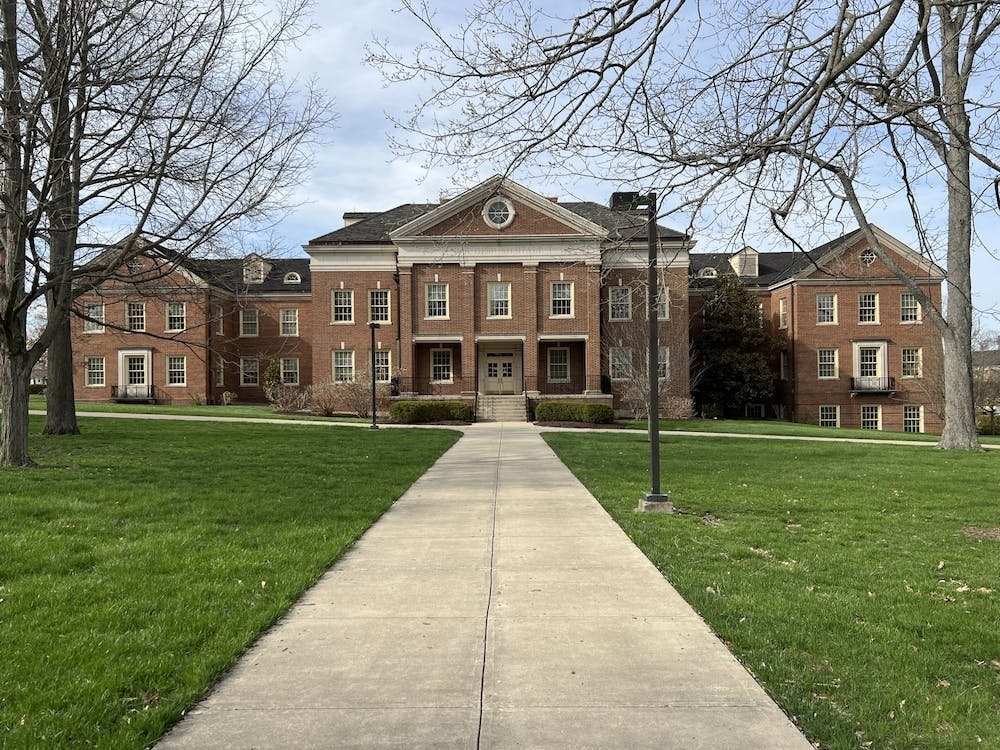There’s no other way to say it: Senate Bill 83, the “Ohio Higher Education Enhancement Act,” will upend your educational experience.
S.B. 83 risks burdening you with new coursework, hurting accredited degree programs (harming some of your chances at graduate or professional education), damaging your professionalization and limiting what you will learn and discuss in your classrooms. It’s a step back for higher education, both in Ohio and in the United States. It’s just one of several bills either passed or introduced by various state legislatures claiming to “protect free speech” and “restore intellectual diversity.” But, it’s so sweeping and general in scope that it will be lawmakers — not you or the experts you work with on a daily basis — designing your education and speaking freely about what you should and shouldn’t learn.
As faculty, we trust your ability as free thinkers. We welcome diverse perspectives. We work alongside you every day and we value what you bring to our teaching and research. We support and struggle to help you achieve your plans for the future.
We joined with hundreds of you in the Farmer School of Business and heard the exciting plans that Intel has for Ohio. They noted how diversity and inclusion are essential to creativity and innovation. We were excited by the new programs they’d bring to our campus. S.B. 83 threatens the future of partnerships such as these. In recent statements, your fellow students, faculty and staff all recognized this danger. So have faculty at The Ohio State University.
But, we also believe in the value of forming your own opinion. You can read S.B. 83 as introduced on the Ohio General Assembly’s website, where you can also track its progress. Decide for yourselves what this might do to your college experience.
The fundamental question for us is: Just what is being “enhanced” here?
So, what about the dollars-and-cents of the thing? Look, we know — your education is expensive and S.B. 83 won’t help. S.B. 83 will result in costly administrative bureaucracy that will create layers and layers of new websites, files, evaluations and reports. You think it’s hard to get a response from an adviser now? Get ready. You want an independent study on cutting edge research? Your faculty might not have time.
Think your voice doesn’t matter? We get that; we’ve had that feeling, too. But this is a moment when that’s not the case — your voice does matter. It may matter more than ours. How will you help lawmakers rethink this bill?
Our communities matter, too. Tell your parents about this bill, teach them what you learn about it and urge them to share their opinions with lawmakers.
The Senate Workforce and Higher Education Committee will take in-person and written opponent testimony on April 19. The advocacy group Honesty for Ohio Education has a web page with information on how to submit testimony on S.B. 83. The League of Women Voters has also collected resources on how to prepare to become an advocate. And Miami University’s own Howe Writing Center will help you work on testimony.
If creating something on your own is overwhelming, the Action Network has a resource that allows Ohio voters to submit a pre-formed response to their lawmakers.
If you’re an out-of-state student, there are ways you can be involved. You can urge your Ohio friends to submit testimony or contact their lawmakers. You can share information about S.B. 83 with people who haven’t been following it as closely. Get the word out.
Enjoy what you're reading?
Signup for our newsletter
We get that you’re burnt out. You’re tired. You’re ready for the semester to end. So are we. Take the time to read this bill. Think about what sort of Miami you want to come to in the fall — as either students or new alumni.
If we don’t all band together to protect your experience and education, who will?
Nathan French is an associate professor of comparative religion and Rosemary Pennington is an associate professor and area coordinator for journalism. They are both university senators.




